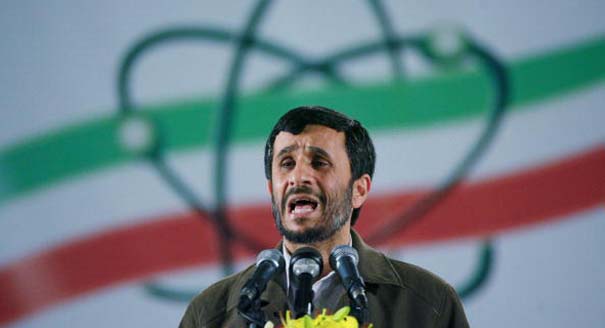The good news is that the drum rolls of war that Israel has beaten for many months have diminished. At least for the moment. The reason is that there is a very small hope that reason and diplomatic skills might prevail after all.
On February 14, Iran answered positively to a letter that the European Union’s foreign policy chief Catherine Ashton had sent to Teheran last October asking to resume negotiations about Iran’s nuclear program. On March 6, Mrs. Ashton sent her own letter of acceptance. Neither side has set preconditions.
Mrs. Ashton will lead the talks that will include the five permanent members of the United Nations Security Council plus Germany (P5+1). No wonder then that this is a big challenge for her, and for the Union. The talks with Iran could give Europe the leadership it so desperately craves and, at the same time allow Mrs. Ashton to assert her own authority as Europe’s top diplomat. She knows full well how steep the challenge is especially how her interlocutors prevaricate or fail to deliver, which is what happened last year with the Istanbul talks. This time, however, the circumstances have changed radically. The talks are about buying time. The big question is who needs breathing space the most.
Let’s start with Iran.
The economy is in bad shape. Inflation is rising. Last December, the Obama administration imposed sanctions on Iran’s Central Bank, almost cutting off its access to revenues. The sanctions the EU imposed in January, which include an oil embargo, are also beginning to bite. By June, they will be in full force. By then, importers of Iranian crude oil will have to have found alternative suppliers. India and China, both major importers of Iranian energy, are already doing that. Back in Washington, the talk in Congress is of new and even harsher sanctions. So in entering talks, Iran could be buying time to avoid that.
This brings us to President Obama.
After the costly wars in Iraq and Afghanistan, neither the U.S. administration nor the public has much stomach for attacking Iran. Even if Israel took the lead role, it is probable that the Americans would have to get involved sooner or later. That is not something that Mr. Obama wants in an election year. Of course, the United States is not off the hook just because there is the prospect of negotiations resuming.
Israel’s Prime Minister, Benjamin Netanyahu and his advisors are not convinced that genuine dialogue with Iran is possible or that President Mahmoud Ahmadinejad’s virulent anti-Israeli and anti-Zionist attitude can change. But for the moment Israel has accepted that talks might restart. It is prepared to give diplomacy a chance, even if it does not believe it will be successful. Still, Israel’s drum rolling has had an effect.
Iran knows that in a conflict with Iran, the United States, Germany and other European countries would have to defend Israel. It may have hit home in Teheran that there might be a very high price to pay for trying to acquire nuclear weapons. That is why everyone has bought some time, including Iran’s and Israel’s neighbors. The region as a whole neither wants Iran to have the bomb nor Israel to bomb Iran.
Egypt, Saudi Arabia, Turkey and Qatar oppose Iran acquiring the bomb because a nuclear Iran would dominate the region. And it would trigger an arms race, with Saudi Arabia, a fierce enemy of Iran, already mulling the idea of acquiring its own nuclear capability if Iran has one.
So right now, everybody can breathe a tiny bit easier. But only for a short while. In that sense, buying time is useful. But it doesn’t change the difficulty of the negotiations where every player brings very high stakes to the table. Indeed, failure is a high probability, but there would be a very high price to pay because of Israel’s reaction and the consequences for the nuclear proliferation regime in the region.
The United States, Europe, and the Middle East must make use of the time they have gained. The stick, by now, is clear. The carrot has to be elaborated. A wider Iranian public needs to be aware of the incentives the West offers: how trade and investment will promise prosperity. It is time, too, to involve regional players, such as Turkey and Qatar, which have ties with Iran. Maybe too, the United States, already rebuffed by Teheran in starting direct talks, should seek a mediator.
The United States did this during the 1979-81 hostage crisis when the Iranians proposed Algeria as mediator. “The Algerians did a brilliant job,” Gary G. Sick, Senior Research Scholar, Columbia University, said in an interview for the Council of Foreign Relations.
No venue or option should be considered too difficult to explore. If success was to be had—and the Mideast snatched back from the abyss—the price would be worth it. Mrs. Ashton, this time round, has no illusions about what failure, or success, would mean.






.jpg)